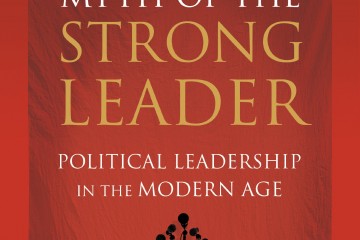
A ‘crowd sourced’ constitutional convention: initiative of the Institute of Welsh Affairs
Why wait for Westminster to grant you a Constitutional Convention?, Guardian columnist Simon Jenkins asked at the IWA’s conference a week before the Scottish referendum. “Hold your own one; decide what you want, and ask for it – you never know, at this time, you might just get it” the former Editor of The Times implored his audience. So that’s what we’re doing. On January 26th we’ll be launching the first ‘Crowd Sourced’ Constitutional Convention on the future of Wales, and the UK. Thanks to dozens of small donations from across Wales, and the support of the UK’s Changing Union project, we are able to launch an eight-week experiment in deliberative democracy to run in parallel with discussions at Westminster …

Should a codified UK constitution include reform or attempt to describe current arrangements
In approaching questions of constitutional change I have learned to be circumspect. It is now clear to me – as it was not even a few years ago – that it is entirely possible to find proponents for almost any constitutional position but virtually impossible to locate any argument that has thus far succeeded in triggering principled reform. To say this is not to deny the existence of constitutional change or even reform. The history of New Labour from 1997 continuing through the Brown administration and on into the present Coalition is testament to the shifting of several – some might say rather too many – constitutional tectonic plates. But the shifting of constitutional tectonic plates either randomly or, more …

Citizens should have the power to call constitutional conventions
There is much debate about the need for a constitutional convention for the UK. The case for a convention is strong: the constitutional settlement is currently in flux with cross-party agreement to devolve further powers to Scotland; the Welsh and Northern Irish assemblies want enhanced powers; and there are calls for devolution to the regions and cities within England and/or an English parliament. Older constitutional issues such as the voting system and the future of the House of Lords remain unresolved. A great deal of ink is being spilled on the question of what form any convention should take. A concern that a new settlement will be a stitch-up amongst the major political parties and the vibrancy of the referendum …

Opening up a new British constitution
Last year the Select Committee for Political and Constitutional Reform published a bulky report with a question as its title: A New Magna Carta? The Committee’s Chairman Graham Allen MP launched it in July at the British Library. It set out three options for the overall reform of the UK’s constitution: a codification of what exists; a consolidation of existing laws and conventions into a unified framework; a written constitution. It issued a call for public responses. To encourage the imagination and inspire people the Committee also lay down a challenge: come up with your own preamble to the Constitution of the future. The air is full of talk about the constitution, about Magna Carta, about the need to renew democracy. So this is …

Can a constitutional convention offer real and radical change?
The establishment of an Irish Constitutional Convention was first proposed in April 2010 at the Labour Party conference in Galway, when then Labour leader Eamon Gilmore called for the establishment of a convention to revise the text of Bunreacht na hEireann, the 1937 Irish Constitution, in advance of the 1916 centenary. Given the outdated language of some of the articles of the Irish Constitution, many of us greeted this proposal with real excitement. The proposal for a convention was subsequently included in the Programme for Government drawn up between Fine Gael and Labour following the February 2011 General Election. In July 2012, motions were passed in both the Dáil and the Seanad (Upper and Lower Houses of the Irish Parliament) …

‘The Myth of the Strong Leader’ by Archie Brown
Just under a decade ago, Archie Brown highlighted several factors that he thought limited the explanatory power of comparative politics as an academic discipline. Such factors included undue emphasis on studying democracies at the expense of autocracies, a lack of methodological pluralism, inadequate attention given to understanding political leaders, its separation of domestic and international relations, and its increased isolation from the “real world of politics” that the discipline sought to explain.[1] ‘The Myth of the Strong Leader’ is a book that addresses all of these criticisms demonstrating both erudition on behalf of Brown and a keen ability to practice what he preaches. This book may well be a significant point of reference to political scientists and the general public. …

What would a constitutional convention for the UK look like?
In the wake of the Scottish referendum, the idea of a constitutional convention is gaining popularity. It appeals to the public and the Conservatives are now the only major party resisting a convention in principle. However, as has been discussed on the UCL Constitution Unit blog, the process of realising a convention that can deliver subsequent reform is likely to be fraught with difficulties. If Labour, the Liberal Democrats, the Greens or the SNP were pushed to define the nature and purpose of a UK constitutional convention, it is almost certain that any consensus would fall apart very quickly. At a recent Constitution Unit seminar, Dr Alan Renwick, Reader in Politics at Reading University and author of After the Referendum: Options for …

Valorised and Vilified: What Do ‘Citizens’ Do? Initial Linguistic Reflections
It is clear that debates about ‘who’ citizens are (as well as normative claims about who they ‘should’ be) are important to understanding the politics of citizenship. However, reflecting on the remit of this special series on ‘Migration and Citizenship’, another fundamental question occurred to me: what do citizens do? Describing the kinds of actions and activities in which citizens—however we may define them—reportedly engage could open further discussion about the nature of citizenship itself.
In my current work with the Centre on Migration, Policy, and Society (COMPAS), I focus on the ways that British newspapers talk about migration issues and relate these narratives to public perceptions and migration policy changes. Using techniques from corpus and computational linguistics, which enables researchers to analyse large amounts of text, I look for (ir)regularities and significant patterns of words. These contextual patterns, called ‘collocations’, can provide insight into a concept: one of the major contributors to linguistics, John Firth, famously expressed this feature of language when he said ‘you shall know a word by the company it keeps’. Applying Firth’s guiding principle to study of UK press portrayal of migrant groups reveals that, in the case of immigrants and asylum seekers, their company is relatively negative. Dr Scott Blinder and I showed that from 2010-2012, the British national press most often described ‘immigrants’ as ‘illegal’ while portraying ‘asylum seekers’ as ‘failed’.
But what about citizens? What does this group of people reportedly do in the context of migration coverage?









